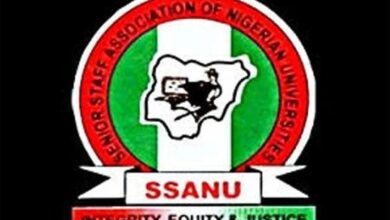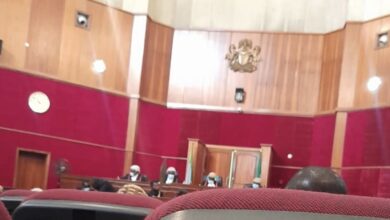NASU alleges FG’s secret deal with ASUU, threatens strike |

The Non-Academic Staff Union of Educational and Associated Institutions has raised the alarm over what it describes as a secret agreement between the Federal Government and the Academic Staff Union of Universities (ASUU) regarding the disbursement of a N50 billion earned allowance.
NASU has warned that any attempt to favour ASUU over other unions in the allocation of the funds could trigger a new wave of industrial unrest.
Addressing members at the Universities and Inter-University Centres Trade Group Council Meeting in Abuja, Prince Peters Adeyemi, NASU’s General Secretary, voiced his concern over the government’s approach to the earned allowance issue, emphasizing that any bias in distributing the funds could destabilize the universities once again.
Adeyemi explained that the earned allowance had been a longstanding issue for the unions and highlighted past grievances when funds were previously divided unequally between academic and non-academic staff.
He said, “When they want to share the money, they give 20 percent to the three non-teaching staff unions and 70 percent to the academics. We protested this,” referring to the discontent that led to the prolonged strike in 2022.
Also Read:
Adeyemi further detailed an agreement signed in August 2022 between the government and the unions, where the government promised to release N50 billion for earned allowances.
However, despite the promise, the government has not followed through with the payment. Recently, NASU became aware of a stakeholders’ meeting on the earned allowance, but only ASUU was invited, raising suspicions that the government intends to allocate the entire amount to ASUU alone, thus excluding the other three unions.
“We strongly suspect the government intends to pay the N50 billion to just one union,” Adeyemi said, adding that such an action would likely lead to industrial unrest. He urged the government to ensure that the allocation is fair and inclusive, emphasizing that selective payments would breach agreements and deepen divisions within the university system.
NASU has also expressed frustration over the Integrated Personnel and Payroll Information System (IPPIS), which was supposed to address personnel issues across universities. According to Adeyemi, the system has failed to fully integrate both assets and liabilities, a critical issue for the non-teaching staff.
Additionally, the union has condemned the illegal stoppage of check-off dues in some institutions, specifically citing the Federal Polytechnic, Ekowe in Bayelsa State. Adeyemi stressed that no rector, vice-chancellor, or provost has the power to stop union dues, as they are protected by Nigerian labor laws.
NASU’s President, Dr. Hassan Makolo, also criticized the government’s failure to pay arrears and the delayed renegotiation of the 2009 agreement. He expressed dissatisfaction with the lack of progress on the renegotiations, which have stalled since December 2024. “Enough is enough,” he declared, urging the government to act with sincerity and urgency.
In his remarks, the Lagos State Chairman of NASU, Timothy Olawore, lamented the persistent challenges in Nigeria’s education sector, including inadequate funding, poor infrastructure, and a rising brain drain. Despite these challenges, he reaffirmed NASU’s commitment to improving the sector.
Furthermore, Buhari Suleiman, the Trade Group Council Chairman and Deputy President of NASU, raised serious concerns about the deteriorating state of Nigeria. He criticized the 9.2 percent education budget for 2025, calling it grossly insufficient and a “clear disregard for global standards.”
Suleiman also condemned Nigeria’s poor ranking on the Global Terrorism Index and the growing power crisis.
He added that the rising unemployment rate and widespread corruption were also contributing factors to the nation’s decline. “No nation develops when its future—the youth—is abandoned,” Suleiman said, emphasizing the need for urgent reforms in the country’s leadership.
NASU has made it clear that unless the earned allowance is distributed fairly, and the issues surrounding IPPIS and other pending agreements are resolved, the union will not hesitate to take industrial action. The government has been urged to act swiftly to avoid a fresh crisis in the education sector.
Post Views: 2






